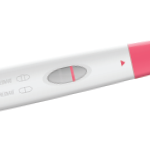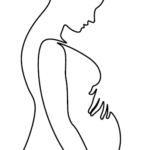Interventions targeted at mitigating the risk of preeclampsia may reduce preterm birth and cesarean delivery in women with rheumatoid arthritis (RA), systemic lupus erythematosus (SLE) and psoriasis. That’s one key finding of a retrospective study published in Arthritis Care & Research.1 The study set out to quantify the mediated effects of autoimmune conditions on adverse pregnancy outcomes.
Although it’s known that women with autoimmune conditions are at increased risk of adverse birth outcomes, less understood is the role played by pregnancy complications on adverse birth outcomes in these women.

Dr. Bandoli
“Researchers and clinicians have suspected that part of the increased risk of adverse birth outcomes observed in women with autoimmune conditions may be mediated through adverse pregnancy outcomes,” says the study’s lead author, Gretchen Bandoli, PhD, assistant adjunct professor, Department of Pediatrics and Department of Family Medicine and Public Health, University of California, San Diego.
A Look at the Study
The study set out to better understand the direct (i.e., non-mediated) and indirect (i.e., mediated) effects of select autoimmune conditions on adverse pregnancy outcomes. It expands on previous data, which showed that women with RA, SLE and psoriasis have a 1.5- to 2.0-fold increased risk of preterm birth and cesarean delivery by quantifying the proportion of that excess risk attributable to pregnancy complications.
The investigators used a causal mediation analysis to estimate the total effects of each of four autoimmune conditions—RA, SLE, psoriasis and inflammatory bowel disease (IBD)—on adverse pregnancy outcome, as well as the indirect effects due to pregnancy complications.
“In brief, mediation occurs when an exposure causes an event, which in turn causes the outcome of interest,” says Dr. Bandoli. A causal mediation analysis, she explains, “allows for interactions between the exposure and mediators, and is robust to confounding that may bias traditional mediation analyses.”
The study population was drawn from a cohort of women with live-born singletons born between 20 and 44 weeks of gestation in California between 2007 and 2012, and further restricted to mother-infant dyads with linked hospital discharge records (n=2,963,888). Of that population, 3,129 (0.11%) were women with RA, 3,863 (0.13%) with SLE, 1,255 (0.04%) with psoriasis and 2,714 (0.09%) with IBD. Birth outcomes examined included preterm birth, cesarean delivery and small-for-gestational-
age offspring. Pregnancy complications (potential mediators) studied included preeclampsia, gestational diabetes and infections. Table 1 lists the key findings of the study.
| Condition | Results |
|---|---|
| RA | • Twofold increased risk of preterm birth compared to women without RA. • Preeclampsia/hypertension accounted for 20% of excess preterm birth, pregnancy infection for 7% and gestational diabetes for 2%. • Preeclampsia/hypertension accounted for 13% of excess cesarean delivery and 8% of small-for-gestational-age offspring. |
| SLE | • Threefold increased risk of preterm birth and nearly twofold increased risk of small-for-gestational-age offspring compared with women without SLE. • Preeclampsia/hypertension accounted for 18–30% excess adverse birth outcomes. • Pregnancy infection accounted for 7% of excess preterm births. • Gestational diabetes contributed no excess risk to any adverse birth outcomes. |
| Psoriasis | • Preeclampsia accounted for 33% of excess preterm births and 12% of excess cesarean deliveries. • Gestational diabetes and pregnancy infections accounted for 9% of excess preterm births. |
| IBD | • Total risks for adverse birth outcomes are similar to those in women with RA. • Pregnancy complications mediated <10% of excess risk of any adverse birth outcome. |
Overall, preeclampsia proved to be the most important mediator of excess birth outcomes risk in select women. The study found women with RA, SLE and psoriasis had a 20–30% excess risk of preterm births and a 10–20% excess risk of cesarean delivery, mediated by preeclampsia. Although women with IBD had the same increased risk of preterm birth and cesarean delivery as women with RA, preeclampsia was not found to mediate the excess risk.
Other pregnancy complications played less of a mediating role in excess adverse birth outcomes. Gestational diabetes and pregnancy infections accounted for less than 10% of excess risk of preterm birth, cesarean delivery or small-for-gestational-age offspring regardless of the type of autoimmune condition.
Using the same model, the investigators stratified the population by race/ethnicity (i.e., non-Hispanic white, Latina, Black and Asian women) to see if mediation differed by race/ethnicity. Table 2 highlights key findings of that analysis.
| Condition | Results |
|---|---|
| RA | • Preterm births were highest in Black women. • Risk of cesarean delivery was highest in Latinas. • Risk of small-for-gestational-age offspring was highest in Asian women. • Latinas had the highest proportion of excess preterm births (25.6%) attributable to preeclampsia/hypertension and pregnancy infection (9%). • Black women had the highest proportion of excess preterm births attributed to gestational diabetes (6.8%). |
| SLE | • Latinas (34.7%) and Asian women (36.4%) had the highest proportion of excess preterm births mediated by preeclampsia/hypertension. • White women (19.5%) had the lowest proportion of excess preterm births mediated by preeclampsia/hypertension. |
| Psoriasis | • Little heterogeneity was found in total effect estimates by race/ethnicity on preterm birth or risk of cesarean delivery or on the proportion mediated by pregnancy complications. • Preeclampsia attributed to preterm birth was highest among Latinas (<10%). • Impact of IBD on preterm births was strongest among Black women. |
Dr. Bandoli says further heterogeneity was found when assessing mediated pathways by race/ethnicity, although the patterns differed when examining the different autoimmune conditions. She underscores that sample sizes were limited when the analysis was narrowed by race/ethnicity and disease.
“Overall, we found Latinas with RA and Latinas and Asian women with SLE may benefit the most from interventions targeting preeclampsia/hypertension with respect to the increased risk of preterm birth,” she says.

